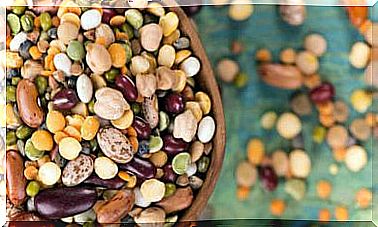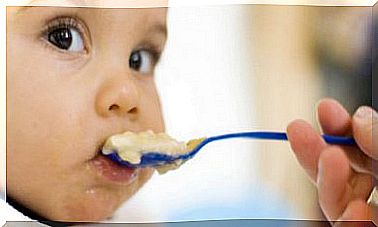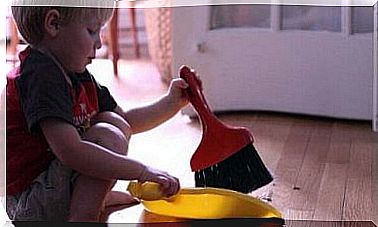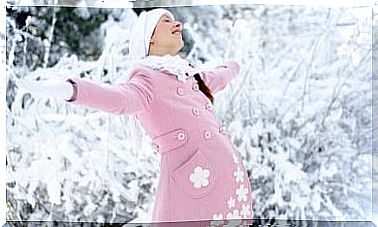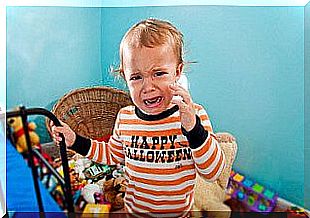Poor Health: When A Child Often Gets Sick
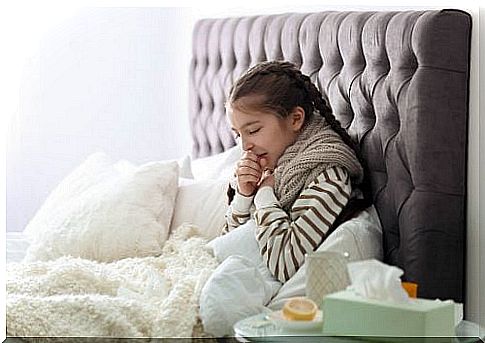
Are there children who get sick more easily than others? Is my baby in poor health? What time of year can you get sick the most? These are questions that pediatricians hear very often.
It is a normal occurrence for children between 1 and 7 years of age to get sick quite frequently and are in poor health. Their immune system is still in a period of adaptation. So it is important to pay attention to the general physical condition of the child more than to the various colds.
Poor health: the child often gets sick
It is a reality that young children get sick very frequently. So much so that sometimes if you think about how often the child has been sick during the year, you can be convinced that he has a serious health problem or that he gets sick more frequently than other children.
However, in order to have a certain answer, some innate characteristics in the child’s growth must be analyzed. First of all, a healthy child gets sick on average 9 times a year due to respiratory viral infections.
If the child is of school age and lives in a place where the parents smoke, the number could increase up to 12 or 13 times a year. As you can see, the figure is very high, but it is in margins considered normal for a healthy child.
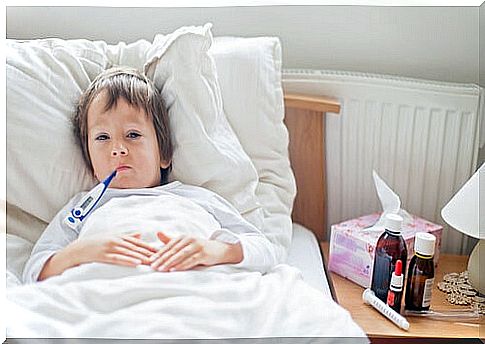
Poor health: how can a serious illness be recognized?
If a healthy child, between 1 and 7 years old, gets sick very often during the year it is certainly due to a lack of the immune system or due to exposure to new pathogenic viruses. How can parents recognize if the child has a more serious illness than the usual cold?
A poor health child gets sick certain times during the year, but if he also has symptoms such as: constant diarrhea, seborrhea, skin fungus or growth problems, there may be a flaw in the body’s defense system.
The same happens if some flu manifestation worsens and turns into pneumonia or meningitis. Furthermore, if the child’s body does not respond to antibiotic treatment then it is advisable to go to the doctor for specific and particular analyzes.
Poor health: difference between immunodeficiencies and allergies
To demonstrate that the baby’s poor health is due to an immunodeficiency, it is important to differentiate several factors. If the body cannot fight the viral agents or if these manifestations are the result of an allergic reaction.
For this reason, an allergic child can be sick almost all year round. He can also suffer from nasal discharge and other types of rhinitis. This is because the defenses overly respond to germs. However, presenting symptoms that are not linked to serious diseases.
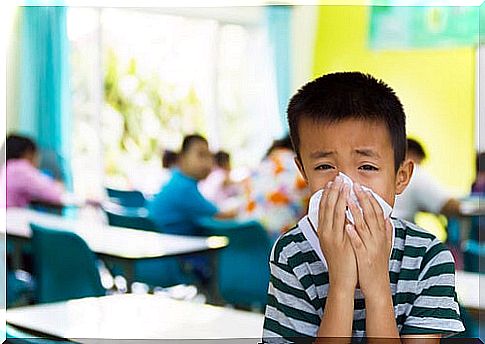
Foods that raise the immune system
A complete and balanced diet has a positive effect on the health of the child; in order to cope with viral diseases and overcome them quickly. Attention must also be paid to the diet of allergic children to decrease the frequency of viral outbreaks.
Nutritionists’ recommendations are based on the daily consumption of at least two rations of fruit and vegetables, focusing on citrus fruits such as orange, lemon and mandarin, rich in vitamin C.
It is also recommended to consume dried fruit, cereals and legumes at least twice a week; yogurt, honey and lots of liquids to keep under control the value of sugars that must be present in the diet with relative frequency.
Finally, if your child is in good health, strong and healthy and growing well, you have nothing to worry about if he gets infected with viral diseases several times a year. This occurrence is common and is within the average of most children in their own developmental stage.


